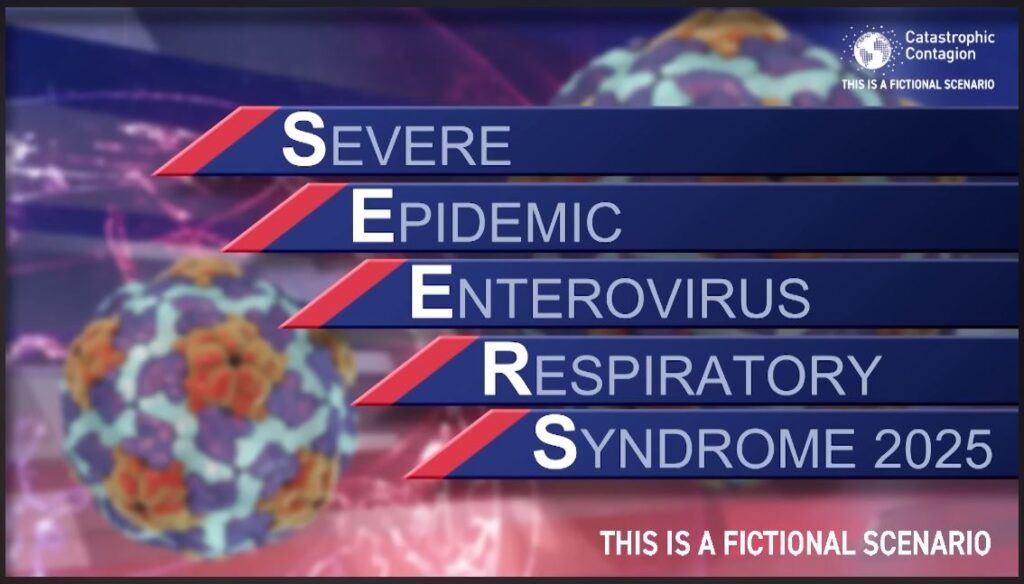The same people behind Event 201, which took place almost three years ago to the day, just completed a desktop simulation for a new Enterovirus originating in Brazil.
The exercise, dubbed Catastrophic Contagion, simulated WHO emergency health advisory board meetings addressing a fictional pandemic that spreads from Brazil to the rest of the world.
In addition to Bill Gates, 10 current and former Health Ministers and senior public health officials from Senegal, Rwanda, Nigeria, Angola, Liberia, Singapore, India, Germany participated in the simulation, which involved pre-recorded news broadcasts, live “staff” briefings, and moderated discussions.
The virus in this simulation, called the Enterovirus, has a higher fatality rate than COVID-19 and disproportionately affects children and young people.
The phenomenon is dubbed SEERS (Severe Epidemic Enterovirus Respiratory Syndrome 2025).
Enteroviruses are any of a group of RNA viruses (including those causing polio and hepatitis A) which typically occur in the gastrointestinal tract, sometimes spreading to the central nervous system or other parts of the body.
Event 201 was a simulation involving a coordinated global response to a coronavirus that was conducted just months before COVID-19 was declared a global pandemic in early 2020.
From the Johns Hopkins website:
Event 201 was a 3.5-hour pandemic tabletop exercise that simulated a series of dramatic, scenario-based facilitated discussions, confronting difficult, true-to-life dilemmas associated with response to a hypothetical, but scientifically plausible, pandemic. 15 global business, government, and public health leaders were players in the simulation exercise that highlighted unresolved real-world policy and economic issues that could be solved with sufficient political will, financial investment, and attention now and in the future.
As such, the fact the same globalist organizations who conducted that exercise are also behind the Catastrophic Contagion simulation is both alarming and foreboding, especially with the inclusion of the specific year 2025 as the start date.
Speaking of 2025, another coronavirus pandemic exercise preceding COVID-19 that also involved Johns Hopkins was called SPARS 2025-2028, which examined the global pandemic response to a respiratory virus that spread from the Philippines to St. Paul, Minnesota.
